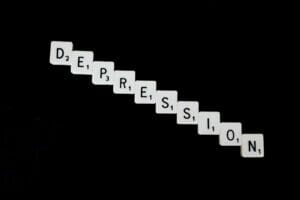Depression is a mental health condition that affects millions of people around the world. It can be challenging to manage, and the effectiveness of traditional treatments such as therapy and medication varies from person to person. However, recent studies have suggested that certain vitamins, particularly Vitamin B, may play a role in managing depression symptoms. In this article, we will explore how Vitamin B works in the body and its potential benefits for individuals struggling with depression.
The Role of Vitamin B in the Body
Vitamin B is a group of eight water-soluble vitamins that are essential for human health. These vitamins include thiamine (B1), riboflavin (B2), niacin (B3), pantothenic acid (B5), pyridoxine (B6), biotin, folic acid, and cobalamin (B12). Each vitamin has its own biochemical properties and plays a unique role in the body.
Overall, Vitamin B contributes to many bodily functions such as energy production, DNA synthesis, red blood cell formation, and neural functioning.
Additionally, certain types of Vitamin B are linked to mood regulation. For example, deficiencies in thiamine have been associated with increased risk of depression.

Likewise, folic acid deficiencies may impair the metabolism of important neurotransmitters like serotonin and dopamine leading to depressive symptoms. Ultimately though research is limited it does suggest that by making sure your body has enough Vitamin B can play an influential role in supporting overall mental health outcomes.
Types of Vitamin B and their Benefits for Depression
There are several types of Vitamin B that have been studied for their potential benefits in managing depression. These include Thiamine (B1), Riboflavin (B2), Niacin (B3), Pantothenic acid (B5), Pyridoxine (B6), Folate (B9) and Cobalamin (B12). Each of these vitamins plays a unique role in the body, with some acting as co-enzymes while others aid in energy production or DNA synthesis.
The benefits of Vitamin B for depression are thought to result from its impact on neurotransmitters such as serotonin, norepinephrine and dopamine, which regulate mood and emotions. Studies have suggested that deficiencies in certain B vitamins may be linked to increased risk of depression, while supplementation may improve symptoms in some individuals. However, it is important to note that more research is needed to fully understand the relationship between vitamin B supplements and mental health outcomes in different populations.
Vitamin B12 and its Effect on Depression Symptoms
Vitamin B12 is a crucial nutrient that plays an essential role in the functioning and well-being of our bodies. A deficiency in this vitamin can cause various health problems, including fatigue, weakness, memory loss, and depression. Studies have suggested that Vitamin B12 may also play an important role in managing depression symptoms.
Research has shown that maintaining adequate levels of Vitamin B12 may improve brain function by increasing serotonin levels —a neurotransmitter responsible for regulating mood and emotions. Furthermore, Vitamin B12 may reduce inflammation associated with depression and support the production of myelin sheath (nerve fibers), which protects nerve cells’ integrity from damage.
In conclusion, while Vitamin B12 alone cannot cure depression completely, it is evident that having enough quantities of this nutrient helps manage some aspects related to its symptomatology. It’s always recommended to consult with a healthcare professional before starting any supplement regimen or treatment plan for depressive disorders.
Folic Acid and its Relationship with Depression
Folic acid, also known as Vitamin B9, is a crucial component of a healthy diet. It plays an important role in numerous bodily functions including DNA synthesis and repair. However, recent research has highlighted its potential benefits for individuals suffering from depression.

Studies have shown that individuals with depression tend to have lower levels of folic acid in their bloodstreams compared to those without the condition. Research suggests that folic acid may help alleviate symptoms of depression by increasing neurotransmitter production in the brain such as serotonin, norepinephrine, and dopamine which are vital for regulating mood.
Additionally, studies have shown that high doses of folic acid can improve cognitive function and reduce negative thoughts associated with depression.
While more research is necessary to determine the exact relationship between folic acid intake and depression management efficacy it appears to be promising evidence-supported treatment option with minimal side effects making it an attractive alternative or complement to traditional medications used during therapy sessions.
Vitamin B6 and its Potential Benefits for Depression
Vitamin B6, also known as pyridoxine, is a water-soluble vitamin that plays a crucial role in brain function and the production of neurotransmitters. Studies have shown that individuals with depression often have lower levels of Vitamin B6 compared to those without the condition. By increasing their intake of Vitamin B6 through supplements or dietary changes, people may experience an improvement in mood and overall mental health.
As well as supporting brain function and regulating mood, Vitamin B6 also contributes to other areas of physical health such as immune system functioning, metabolism, and cardiovascular health. However, it is important to note that while some studies have shown promising results regarding the use of Vitamin B for managing depression symptoms, further research is needed to fully understand its effectiveness and potential side effects. Before making any significant changes to diet or supplement routines in hopes of easing depressive symptoms it’s best consulting with qualified medical practitioners first.
Vitamin B3 and its Impact on Mood Regulation
Vitamin B3, also known as niacin, is a water-soluble vitamin that plays an essential role in various bodily functions. One significant benefit of Vitamin B3 is its impact on mood regulation. Studies suggest that individuals with low levels of Vitamin B3 may be more susceptible to depression and experience symptoms such as anxiety, fatigue, and irritability.
Research has shown that increasing intake of Vitamin B3 can help alleviate these symptoms by supporting the production of neurotransmitters like serotonin and dopamine. These neurotransmitters are responsible for regulating mood and feelings of well-being in the brain. Additionally, some studies have found that taking high doses of Vitamin B3 alongside conventional antidepressant medication may improve treatment outcomes for people with depression.
In conclusion, while there is more research needed to fully understand the relationship between Vitamin B3 and mood regulation, evidence suggests it can play a beneficial role in managing depression symptoms. Supplementing with this vitamin or incorporating foods rich in it into your diet may be worth considering for individuals coping with mental health conditions like depression or anxiety.
Foods Rich in Vitamin B for Depression Management
Vitamin B is a group of essential vitamins that play crucial roles in the functioning of our bodies. These vitamins help to convert food into energy, maintain healthy skin and muscles, and support neurological functions. Vitamin B also plays a significant role in mental health as it helps to regulate mood by producing neurotransmitters such as serotonin, dopamine, and norepinephrine.
Foods rich in vitamin B can be beneficial for people with depression as they provide important nutrients that are often lacking in their diet. Some of the best sources of Vitamin B include dark leafy greens like spinach and kale, whole grains like brown rice and quinoa, nuts like almonds and cashews, legumes such as lentils and beans, animal products like eggs and dairy products including cheese and yogurt. Incorporating these foods into your diet may help boost your intake of vitamin B which could improve your mood along with other benefits for general health maintenance.
Summary
Depression in adults, particularly in physically disabled older women and older adults with depressive symptoms, may be linked to deficiencies in B vitamins, as suggested by the ‘Beyond Ageing Project’. One such deficiency is Vitamin B-12, with numerous studies establishing a correlation between vitamin B-12 deficiency and depression. Case-control studies and a significant cohort study have also associated low vitamin B-12 levels and B12 deficiency with depression, underscoring the relationship between vitamin B-12 status and mental health.

Symptoms of vitamin B-12 deficiency can mirror causes of depression, thus making the effects of vitamin B noticeable in people suffering from depression. Despite being a high vitamin source, many individuals may have trouble getting enough B-12, contributing to a broader vitamin deficiency.
Vitamin B-6 and folate, along with B-12, are specific B vitamins linked to depression.
They play significant roles in the brain’s chemical production affecting mood, hence their deficiency and depression are often related. Researchers have proposed that vitamin B-12 supplementation to prevent cognitive decline in community-dwelling older adults with depressive symptoms could be a better treatment option for depression. Acid and vitamin B-12 supplementation have shown promising results in reviewed studies.
While B-12 supplementation to prevent cognitive decline seems promising, it’s essential to note that treatment of depression usually involves a multifaceted approach. A blood test to check concentrations of vitamins can identify a B12 deficiency, informing depression treatments.
Adults with depressive symptoms should talk to their doctor about the potential benefits of supplementation of vitamin B. Taking a vitamin supplement could be associated with a lower risk of depressive symptoms. Further research is required to establish the full potential of B vitamins in depression treatment.
Frequent Question
Q: What is the role of B vitamins in relation to depression?
A: B vitamins, particularly vitamin B-12, play a vital role in the production of neurotransmitters, such as serotonin and dopamine, which impact mood regulation. Deficiencies in B vitamins have been linked to depression and other mental health conditions.
Q: What is vitamin B-12 and how does its deficiency affect mental health?
A: Vitamin B-12 is a water-soluble vitamin that is essential for the proper functioning of the nervous system and the production of red blood cells. A deficiency in this vitamin can cause symptoms such as fatigue, weakness, and depression.
Q: What are the effects of low vitamin B-12 levels on mental health?
A: Low vitamin B-12 levels have been linked to depression, as well as other mental health conditions such as anxiety, dementia, and cognitive decline in older adults.
Q: How common is vitamin B-12 deficiency?
A: Vitamin B-12 deficiency is relatively common, especially among older adults and vegetarians/vegans, due to a lack of dietary intake. It is estimated that up to 15% of people over the age of 60 may have a vitamin B-12 deficiency.
Q: Can vitamin B-12 supplementation improve depression?
A: Research has shown that vitamin B-12 supplementation, particularly in combination with folic acid, can help improve symptoms of depression in some patients with a deficiency. However, further research is needed to confirm its effectiveness as a treatment option.
Q: Is there a link between vitamin B-12 deficiency and depression in older adults?
A: Yes, studies have shown a strong correlation between vitamin B-12 deficiency and depression in older adults, particularly in community-dwelling older women. It is important for healthcare professionals to screen for deficiency and provide appropriate supplementation to improve mental health outcomes.
Q: Can celiac disease cause vitamin B-12 deficiency and depression?
A: Yes, celiac disease, an autoimmune disorder that affects the absorption of nutrients in the small intestine, can cause vitamin B-12 deficiency and lead to depression and other mental health conditions. It is important for individuals with celiac disease to monitor their vitamin levels and supplement as needed.
Q: What is the recommended dietary intake of vitamin B-12 for adults?
A: The National Institutes of Health recommends a daily dietary intake of 2.4 micrograms of vitamin B-12 for adults. However, this may vary based on age, gender, and other factors. Supplementation may also be necessary, particularly for those at risk of deficiency.
Q: What is the relationship between folic acid and vitamin B-12 in relation to depression?
A: Folic acid and vitamin B-12 work together in the body, and deficiencies in either can contribute to depression. Supplementation with both has been shown to improve symptoms in some patients with depression and cognitive impairment.
Q: Can vitamin B-12 supplementation prevent depression?
A: While vitamin B-12 supplementation may not necessarily prevent depression, ensuring adequate levels of this vitamin can help reduce the risk of deficiency-related symptoms, including depression. It is important to speak with a healthcare professional before starting any supplementation regimen.



 Signs of Vitamin B Deficiency: B12 Lack, Folate Deficiency, Anemia
Signs of Vitamin B Deficiency: B12 Lack, Folate Deficiency, Anemia
